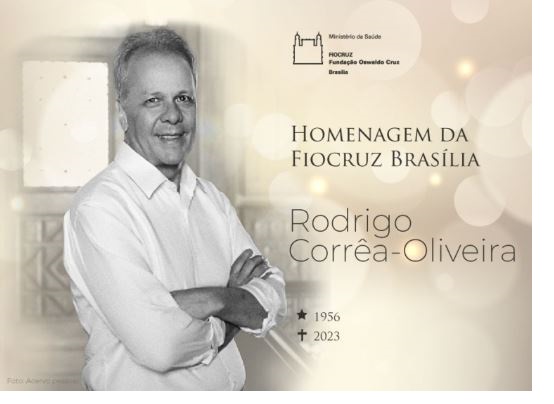I was deeply saddened to learn of the passing of Dr Rodrigo Corrêa-Oliveria, a leading immunologist in Brazil who was passionately dedicated to research on Chagas disease, schistosomiasis and leishmaniasis.

Dr Corrêa-Oliveria, who served as vice-president of Research and Biological Collections at the Oswaldo Cruz Foundation (Fiocruz), was a representative of Brazil and the Americas on TDR's Joint Coordinating Board between 2004 and 2023. TDR also funded his doctoral studies at Johns Hopkins University in the United States.
At Fiocruz's Laboratory of Immunology of Parasites at the Research Centre René Rachou (CpqRR), he investigated the immune response against parasitic infections, and between 2009 and 2012, was director of the centre. Here, he conducted clinical trials with international partners on a schistosomiasis and canine Leishmanisis vaccine. His team also participated in the Benznidazole Evaluation for Interrupting Trypanosomiasis (BENEFIT) clinical trial to discover whether treating Chagas sufferers during the chronic phase can delay or block the severe form of the disease.
Professor Peter Hotez, former President of the Sabin Vaccine Institute, said Correa-Oliveira was known as a visionary scientific leader. “This was true not only for his ability to groom and develop young scientists, but also to launch cutting edge translational research initiatives, including the clinical field testing of antihelminthic vaccines developed at our Sabin Vaccine Institute,” he said.
In recognition of his scientific activities, Dr Corrêa-Oliveria participated in advisory committees of the World Health Organization (WHO) and received several titles and honors throughout his career, such as Honor for Health Merit of the State of Minas Gerais, Carlos Chagas Medal, Medal of Latin American Pathology Society, among others, according to Fiocruz. He was a full member of the Brazilian Academy of Sciences, full member ( fellow ) of The World Academy of Sciences for the Advancement of Science in Developing Countries (TWAS), International Fellow of the American Society of Tropical Medicine and Hygiene (FASTMH), volunteer professor at the School of Nursing at UFMG, visiting professor at the Federal University of Minas Gerais and the Federal University of Ouro Preto, and adjunct professor at the George Washington University School of Medicine and Health Sciences (USA).
Our deepest sympathies and condolences are with Dr Corrêa-Oliveria’s family, friends and past colleagues.
Sincerely,
John Reeder

